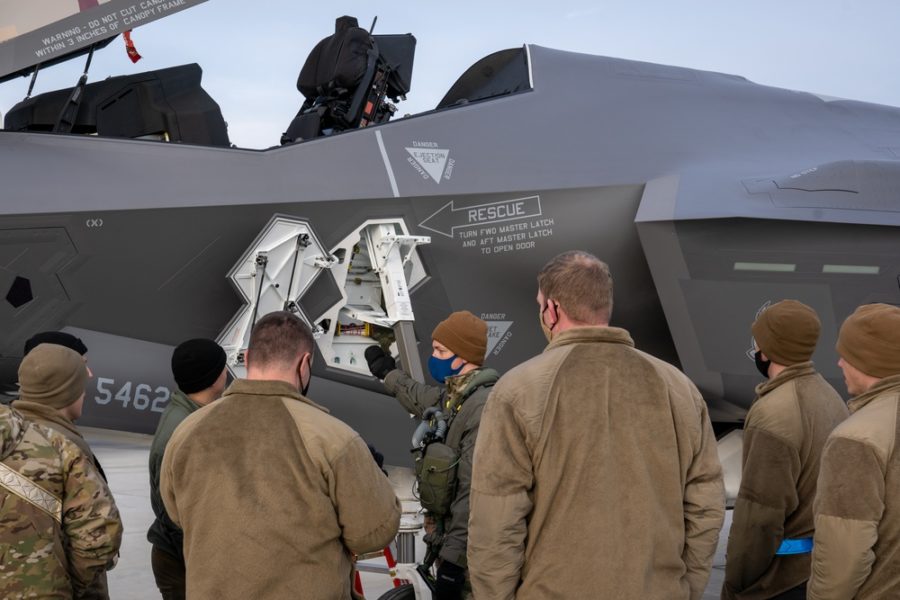The F-35 Joint Program Office’s efforts to revamp the fighter’s troubled sustainment and maintenance enterprise reached a new milestone as the JPO announced the installation of 14 hardware systems for its new Operational Data Integrated Network.
The hardware systems, called the ODIN Base Kit, were installed between July 2021 and January 2022 and replace the troubled Autonomic Logistics Information System—all “first-generation ALIS servers” are now out of the field, the JPO said in a press release.
ALIS was intended to be a vast information-gathering system that tracked F-35 data in-flight, relaying to maintainers on the ground the performance of various systems in near-real time. It was meant to predict part failures and otherwise keep maintainers abreast of the health of each individual F-35.
Instead, the system was crippled by outdated technology, false alarms, laborious data entry requirements, and clumsy interfaces. By January 2020, the JPO announced that it was dumping ALIS in favor of the rebranded ODIN.
ODIN, officials said at the time, will be more secure, produce fewer errors, and be easier to use. It will also provide improved insight into F-35 parts usage and enable predictive maintenance, driving down costs.
The ODIN Base Kit is the first part of the new system to be rolled out to military installations and will continue to be installed through 2023, the JPO said. It is “75 percent smaller and lighter than previous hardware and was procured at nearly 30 percent lower cost,” the office stated.
The reduced weight is especially key, considering a Government Accountability Office report found that the ALIS servers “weigh approximately 200 pounds and require at least two people to lift … [and] need a whole room to operate,” creating logistical challenges, especially for deployments. In contrast, the OBK has two modules that weigh under 100 pounds each.
“Recent global OBK installations mark a major milestone in modernizing the F-35 logistics information systems in support of global operations,” F-35 Program Executive Officer Lt. Gen. Eric T. Fick said in a statement. “This was a team effort between the Department of Defense, defense industry, and our F-35 Partners, and is a giant step forward in support of international logistics and operational management of the global and expanding F-35 fleet.”
The ODIN Base Kit is designed to run both the ALIS software and future ODIN software programs, the joint program office added.
“We’re excited about the improvements ushered in by the ODIN Base Kit in 2021 and look forward to outfitting the entire fleet with this enhanced capability as schedules and funding permit,” said Air Force Col. Dan Smith, JPO maintenance systems program manager overseeing ALIS and ODIN. “OBK feedback has been overwhelmingly positive and will save our F-35 maintainers time and operating costs throughout the maintenance lifecycle.”
While the first generation of unclassified ALIS servers are now out of circulation, other units will be replaced throughout 2022 and 2023. And OBK itself will also be updated as Lockheed Martin and the JPO look to design and develop “improved hardware for classified functions.”
The following locations received ODIN Base Kits:
- Naval Air Station Lemoore, Calif.
- Nellis Air Force Base, Nev.
- Hill Air Force Base, Utah
- Eielson Air Force Base, Alaska
- Marine Corps Air Station Miramar, Calif.
- Marine Corps Air Station Beaufort, S.C.
- Lockheed Martin Aeronautics factory, Fort Worth, Texas
- Eglin Air Force Base, Fla.
- Luke Air Force Base, Ariz.
- Edwards Air Force Base, Calif. (three OBKs installed)
- Amendola Air Base, Italy
- Portsmouth Naval Base, U.K.

